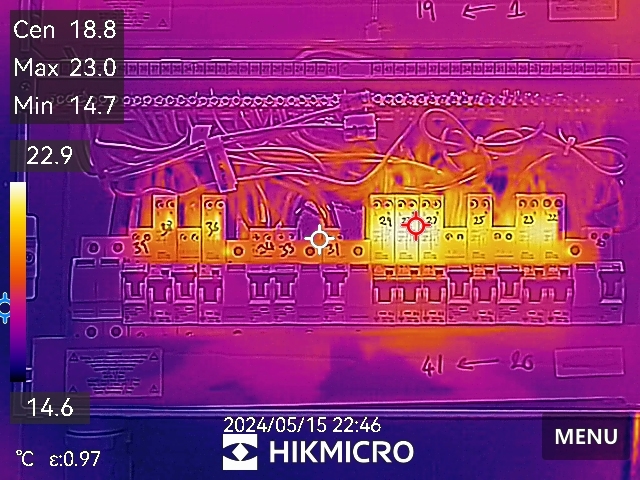Hi all, I wonder if anyone can shed some light on an arc-fault-finding issue?
Installation details:
Large domestic property with a 42-way DB, a large Loxone (home automation) panel with it’s own 24V battery backup. Uniti Power Usymphony SPY300 provides UPS for two circuits (WI-FI & Medical equipment). Install with no issues since May 2023. A Riello SDH 3000 Sentinel Dual 3000VA is providing UPS to a home lift circuit that was added over a month ago.
Eleven Contactum 32A AFDDs are installed on all socket outlet circuits. RCBO’s on all other circuits
The property is located close to a small/medium-sized retail park.
The Problem:
The homeowner called on Monday this week to say that the kitchen electrics had tripped out. She then followed up with messages to say that the annexe kitchen had tripped, then the loft and then the bedroom sockets. All had tripped when appliances were operated. Sometimes a washing machine, toaster, kettle hover, etc. In all, four AFDD circuits tripping randomly.
Fault finding:
The kitchen AFDD stays up, but when I put on the kettle and the toaster the AFDD trips. If the fridge and toaster are on, the AFDD trips. With the UPS systems removed, it still happens.
I removed both UPS systems before testing.
I tested the kitchen circuit; it was solid, with no issues. Earth leakage at the incomer was 23.55mA; on the kitchen circuit, it was 3.4mA with appliances on standby. I tested all the kitchen appliances under load, and the total leakage was approximately 3 mA. I ramp-tested the AFDD—23mA. I moved the appliances around the property and could see that they were not the problem. So, it was definitely an arc issue. Also, the LED status indicated an arc trip. Continuity tests confirmed no loose connections.
With all other circuits off. I cannot get the kitchen AFDD to trip.
Cause:
I spoke with Contactum technical, who were really helpful, but we couldn’t determine what was tripping the arc device. Spoke to the NICEIC – they could not provide any support.
The fact that it has been in place for over a year with no issue, could it be a quality of supply issue from Nathoin Gird? The property has had a number of mini power cuts in the past – hence the UPS going in.
Any suggestions?
Thanks in advance. :-)

